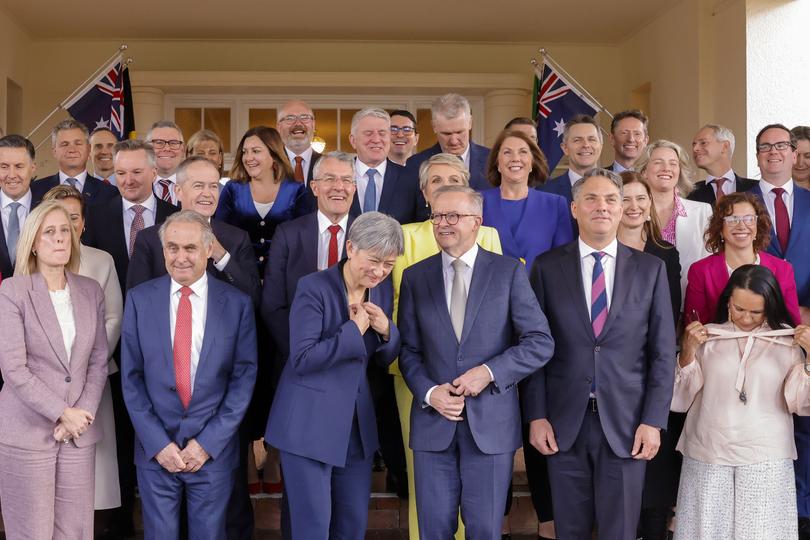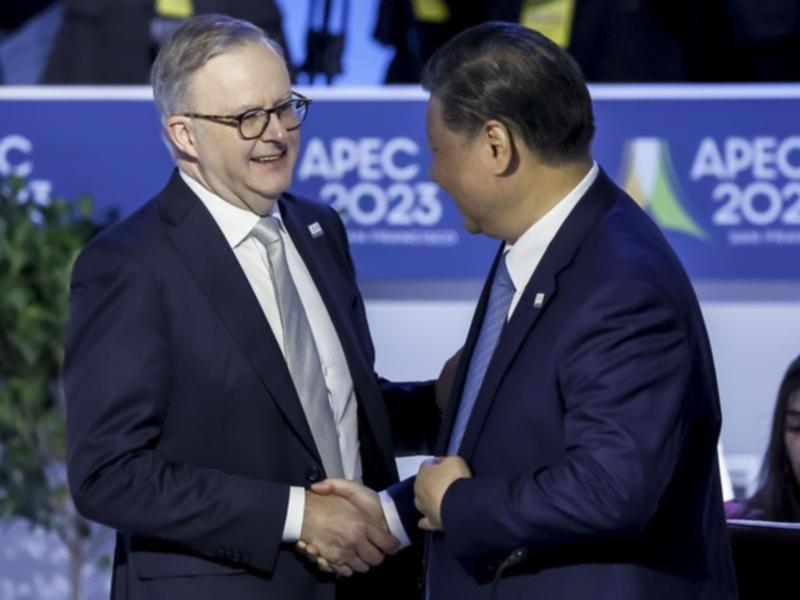Mark Riley: Anthony Albanese’s government needs to reconnect with the Australian people, and fast
Things are beginning to turn for the Albanese Government as the PM’s reputation for calm and measured political management is being questioned.

Things are beginning to turn for the Albanese Government.
The impression it has built of controlled authority is looking shaky.
On several issues of late, it has appeared uncertain, confused and slow to react.
Sign up to The Nightly's newsletters.
Get the first look at the digital newspaper, curated daily stories and breaking headlines delivered to your inbox.
By continuing you agree to our Terms and Privacy Policy.Its reputation for calm and measured political management is being questioned.
So is Anthony Albanese’s assurance that “the grown-ups are in control”.
And a Prime Minister who prides himself on his authenticity and candour is now appearing at crucial times to be choreographed and evasive.
The Albanese Government is losing momentum.
Ministers know it. Strategists feel it. Pollsters are picking it up in their focus groups.
It happens to all governments at some point. And it isn’t necessarily fatal. But it’s essential that those in control accept it is happening and address it — quickly.
The comprehensive defeat of the Voice referendum has changed the public’s perception of the Government’s political ascendancy.

A Prime Minister who promised a revived era of harmony and consensus is accused of leading the country through an ugly and divisive process.
It wasn’t all his doing. But as PM he is inevitably lumbered with the blame. That’s politics.
The loss hurt Albanese. Deeply.
A leader with a storied Labor upbringing had beseeched the party base to back him on an issue that deeply touched his heart.
They said No.
That same base now watches anxiously as the rising cost of living puts the squeeze on their family finances and wonders whether their Government could be doing more to help.
The Government assures them it’s already delivered $23 billion in cost-of-living relief.
“Cheaper medicines, cheaper child care, cheaper and cleaner energy, fee-free TAFE,” is the constant refrain.
The Albanese Government is at a turning point in its relationship with the Australian people. It needs to reconnect. And fast.
But the financial pain keeps coming. Petrol is expensive, electricity bills remain high and mortgage repayments are skyrocketing after 13 interest rate rises.
Compounding that, voters are seeing a Government that no longer appears to be in control at crucial times.
The response to the High Court decision on indefinite detention has been messy and confusing.
The Government says it was always examining legislative options in case of an adverse ruling, but appeared flat-footed and clueless when that decision came.
Then it allowed Peter Dutton to effectively control the response, accepting his amendments imposing a severe regime that will be difficult to administer.
Albanese was in San Francisco at APEC at the time but was heavily involved in the negotiations. He acquiesced to Dutton’s demands rather than engage in a protracted debate over border protection.
But it was what he apparently didn’t do at APEC that has caused him the most damage.

Albanese spoke to Chinese President Xi Jinping on the sidelines of the meeting on Friday, three days after a Chinese warship hit a group of Australian naval divers with potentially dangerous sonar pulses.
But information about that incident wasn’t released by the Australian Government until Albanese was heading to the airport, an hour after his final APEC news conference.
The timing was cynical, and assured that the Prime Minster wouldn’t be questioned about it for days.
When he was finally interviewed on Tuesday, he point-blank refused to say whether he’d raised the issue with President Xi.
Albanese insisted that he never spoke publicly about his informal discussions with other leaders.
That was immediately exposed as untrue.
He had talked about that exact same meeting with Xi in some detail at an earlier news conference at APEC.
He’d revealed they’d spoken about his recent trip to China and about the remaining trade sanctions on Australia. He even took a question about whether he’d raised US President Biden’s description of Xi last week as a dictator. He hadn’t.
But he refused to say whether he did or did not raise the attack on Australian sailors.
Peter Dutton labelled him misleading, deceptive and tricky — all the same things Anthony Albanese used to call John Howard, Tony Abbott and Scott Morrison.
And that is how he appeared.
The Albanese Government is at a turning point in its relationship with the Australian people.
It needs to reconnect. And fast.
Being upfront and open, even when it’s inconvenient to do so, would be a good start.

